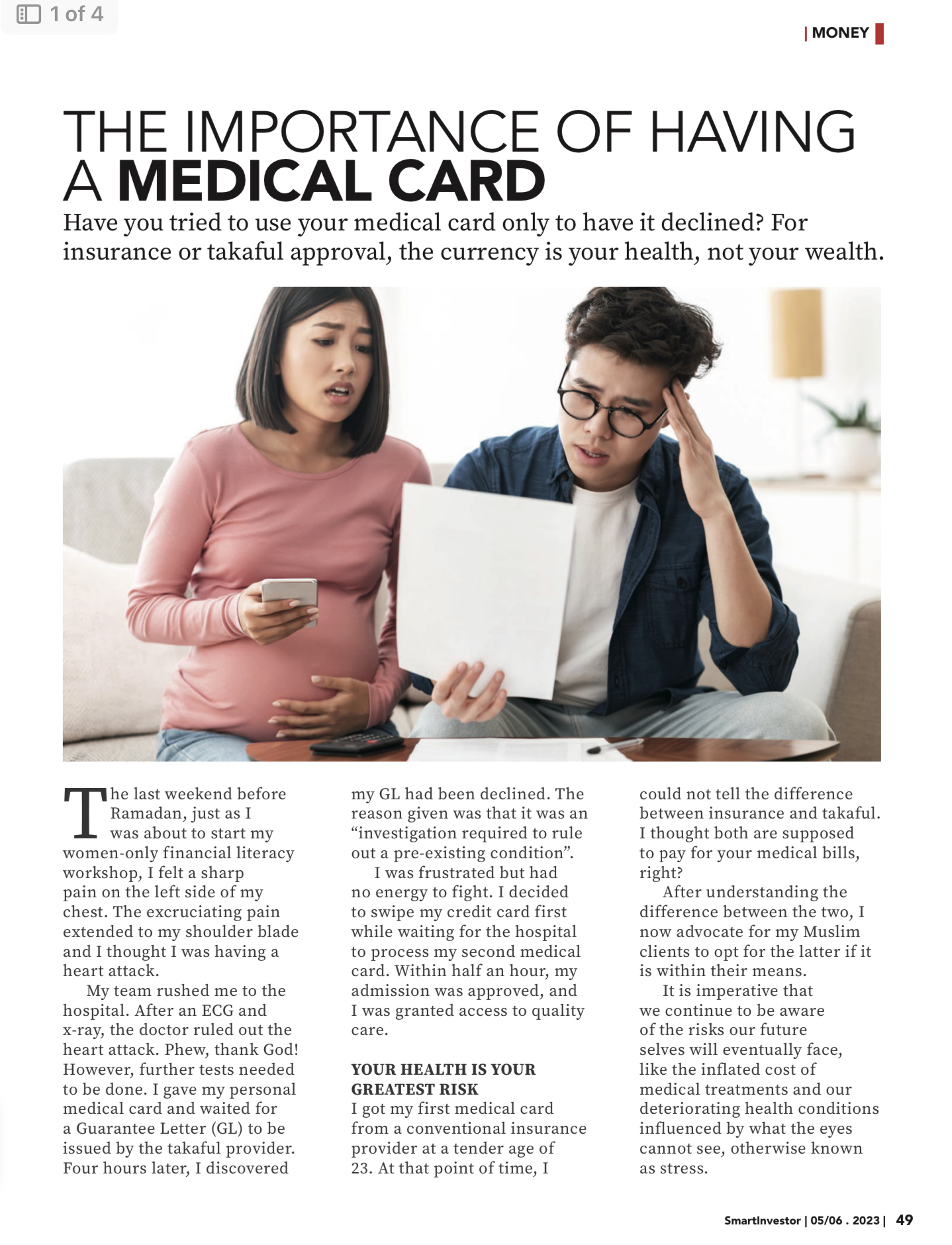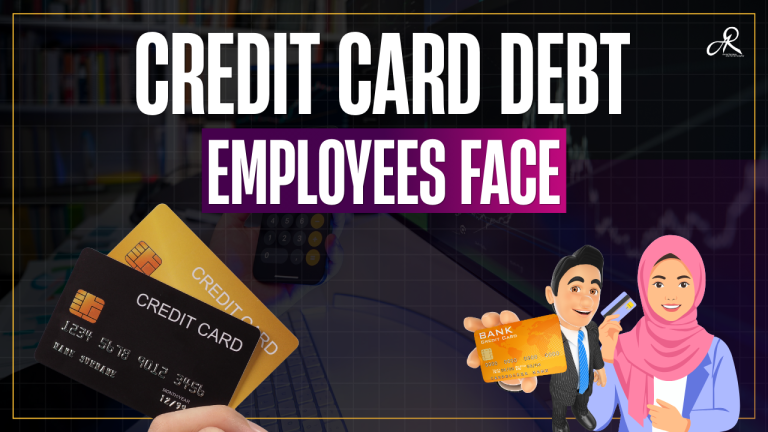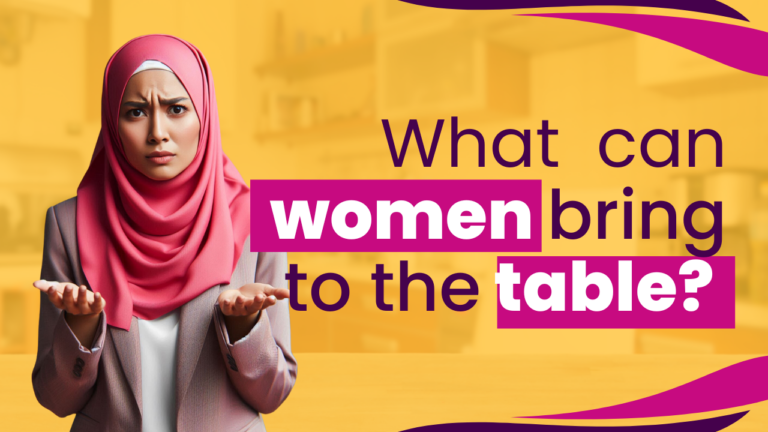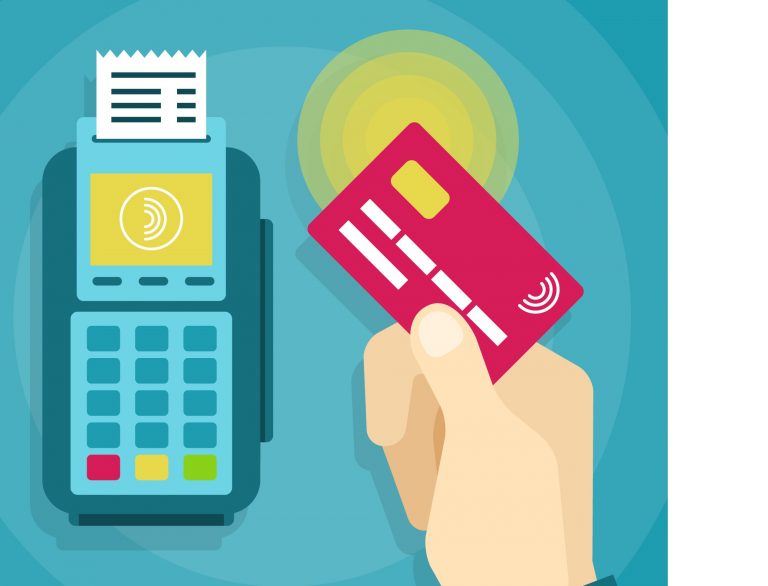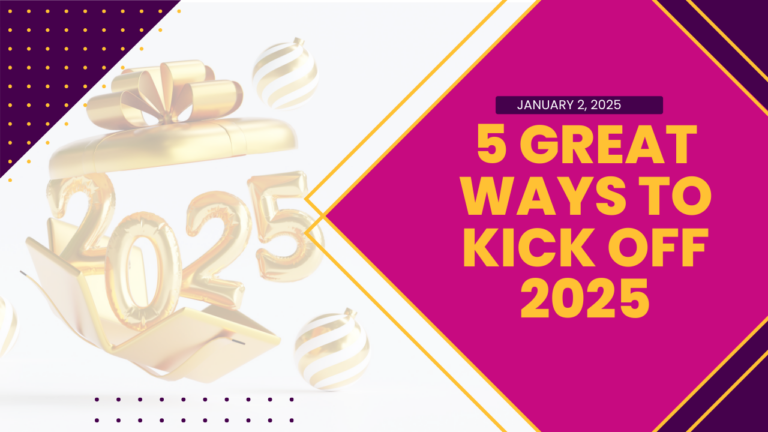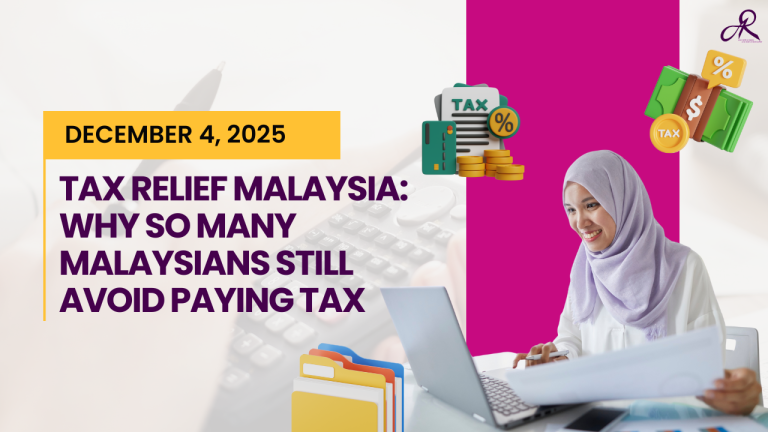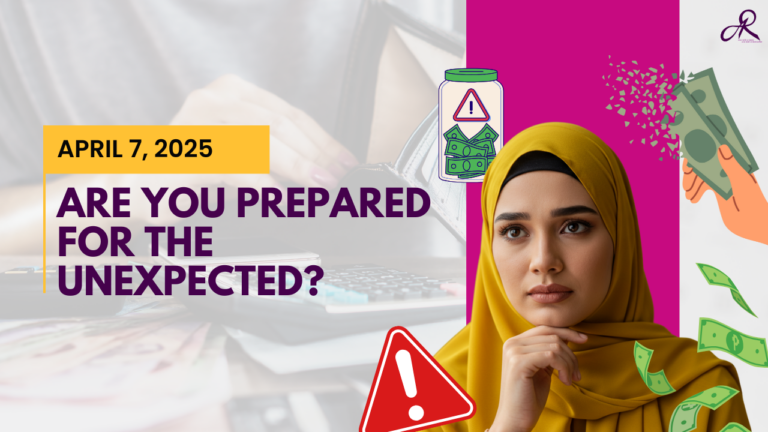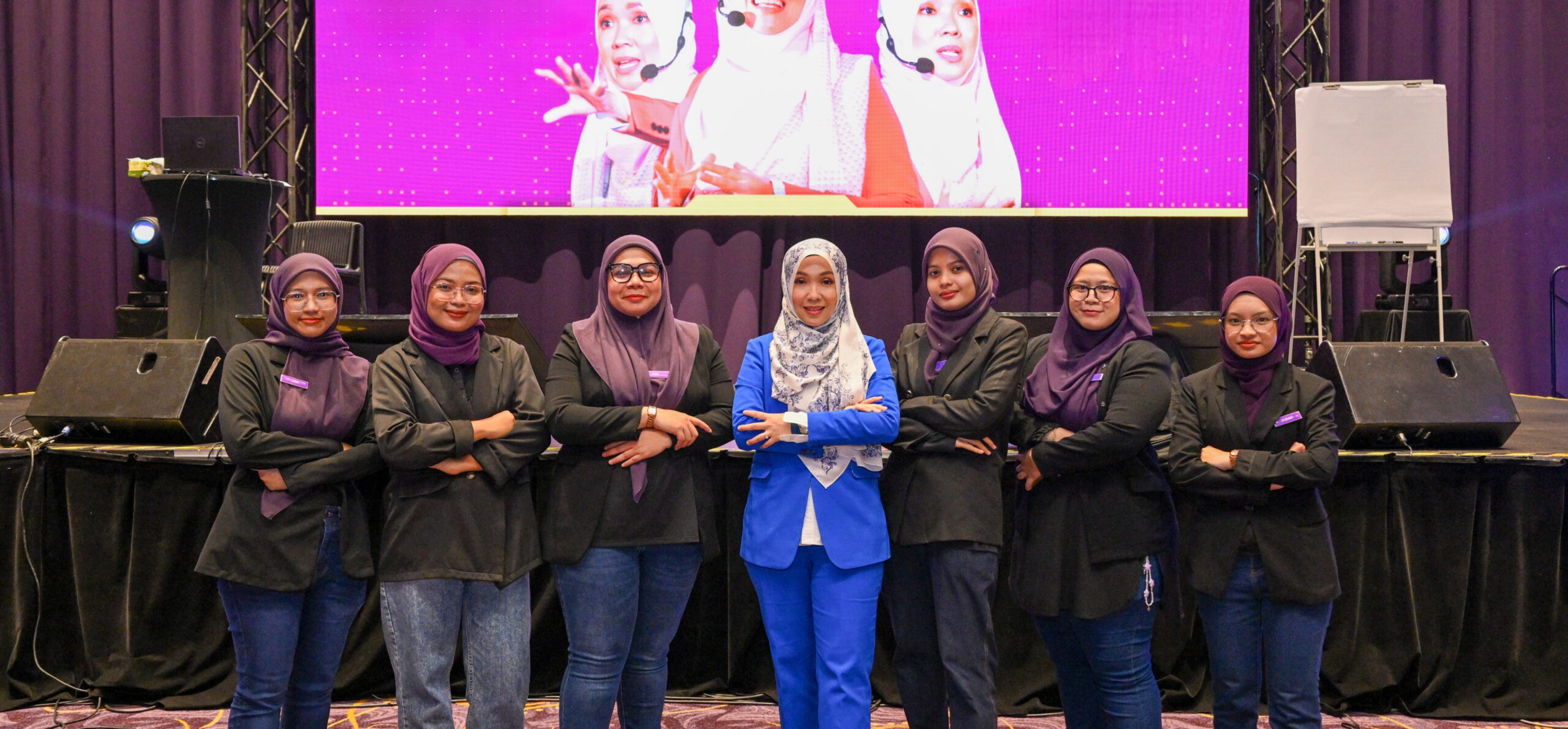The importance of having a medical card.
The last weekend before Ramadan, just as I was about to start my women-only financial literacy workshop, I felt a sharp pain on the left side of my chest. The excruciating pain extended to my shoulder blade and I thought I was having a heart attack.
My team rushed me to the hospital. After an ECG and x-ray, the doctor ruled out the heart attack. Phew, thank God! However, further tests needed to be done. I gave my personal medical card and waited for a Guarantee Letter (GL) to be issued by the takaful provider. Four hours later, I discovered my GL had been declined. The reason given was that it was an “investigation required to rule out a pre-existing condition”.
I was frustrated but had no energy to fight. I decided to swipe my credit card first while waiting for the hospital to process my second medical card. Within half an hour, my admission was approved, and I was granted access to quality care.
YOUR HEALTH IS YOUR GREATEST RISK
I got my first medical card from a conventional insurance provider at a tender age of 23. At that point of time, I could not tell the difference between insurance and takaful. I thought both are supposed to pay for your medical bills, right?
After understanding the difference between the two, I now advocate for my Muslim clients to opt for the latter if it is within their means.
It is imperative that we continue to be aware of the risks our future selves will eventually face, like the inflated cost of medical treatments and our deteriorating health conditions influenced by what the eyes cannot see, otherwise known as stress.
Having a corporate medical benefit under your employment should not be the reason you do not have your own medical card. Eventually, those corporate medical benefits will come to an end. What medical benefits do you fall back to then, if not your own?
OLDER INDIVIDUALS ARE LIKELY TO GET THEIR MEDICAL APPLICATIONS REJECTED
From the onset of the pandemic, I have witnessed my older clients having their applications rejected. Like them, you may think it is a wise decision to delay having your own medical plan only at retirement age, because really, that is when you need it the most. You may also assume that your existing health conditions are nothing to be concerned about, giving you the confidence that your future medical application will be approved seamlessly.
However, that is not how insurance and takaful providers assess your health conditions and medical applications. The more existing health conditions you have, the more reason these providers will question and possibly decline your applications. Insurance and takaful providers are not charity bodies. Your existing health conditions are risks to these providers. Why would they want to accept applicants with existing risks, as the assumption is: more risks, more claims to be paid out?
Here’s one tip: We need to apply for these medical plans when we are healthy, not when we are wealthy. That means right now. Delaying your application to later (like upon retirement) will only reduce your eligibility.
A client of mine was willing to pay more for her application to be reviewed and approved, but to her dismay, she stood no chance. This validates the assumption that no matter how much money you have, the currency for application approval is still your health, not your wealth.
WHAT DO YOU DO WHEN YOUR MEDICAL APPLICATION IS REJECTED?
I know how it feels because I had my own applications declined too, twice. It took me two years of hard work to enhance my health conditions. When my health conditions got better, backed by a thorough medical report, I applied for a medical plan immediately. The takaful provider accepted my application despite excluding certain benefits. It is still better to have exclusions than not having your application accepted at all.
However, not everyone can have the luxury of having a medical plan. This is where having sufficient savings is important to be able to afford quality care. There is nothing wrong with getting treatment from a government hospital but know that not all treatments can be carried out on the spot as you may need to wait for your turn, which could take up to months.
UNDERSTAND THE WAITING PERIOD AND CONTESTABLE PERIOD
The reason my GL was declined at the hospital was because my medical plan was less than two years old. If the GL that you are requesting for is for you to seek treatment for a condition which mimics critical illness, insurance or takaful providers have the rights to contest and decline your GL.
If I did not have my second medical card in place, I would have needed to pay for my admission first and claim from the takaful provider later. This is what you will need to do if the same were to happen to you (if you only have one medical card).
To be eligible to claim, your insurance or takaful provider will need a copy of a statement from your regular doctor, a referral letter on the symptoms and your medical check-up results from the last five years. Putting all these documents together can be time consuming but a necessity to prove that what you had was not a pre-existing condition. If you can prove yourself, your claims will then be processed accordingly. Else, say hello to self-pay!
Other than the contestable period, also take note of the usual waiting period. Different periods apply for each condition, so here is one homework for you. Read your insurance policy or takaful certificate and familiarise yourself with the waiting period. While you are at it, read your benefits too. Most of my clients do not even know what they have!
BEST PRACTISES TO TAKE NOTE OF
When it comes to your health management, you must establish a habit of going for medical check-ups annually. You can claim for tax relief too, so it is a win-win for your health, wealth, and taxes.
Conduct the medical check- ups with the same doctor. This allows you to keep all your records in one place. I know of people who hop from one clinic to another to carry out their annual medical check-up because of the cheaper promotions. In the event of claims or query, can you imagine how many clinics you’d need to visit to gather all your documents together?
Secondly, always keep a scanned copy of your medical reports in a hard disk or Google Drive. File the hard copy too.
CELEBRATE YOUR HEALTH LIKE HOW YOU CELEBRATE YOUR WEALTH
Our health is not as tangible as our wealth. That is why our health can sometimes take a back seat. Have a medical plan in place with the right coverage to catch you when your health falls, so that when you need to take a break, your medical plan can look after you financially and allow you to rest. Don’t let the fall of your health be the fall of your wealth too.
Tired of agents selling you plans that you may not necessarily need? Want to audit your current insurance or takaful plans and see where you lack? Join us in our upcoming Cohort 2: Women & Wealth Workshop where we’ll teach you the tips and tricks to customise your own plan based on what you truly need.
Last day to enrol: 14 May 2023. Register your details here to get information on class dates, available packages with or without one to one advisory, 0% instalment plans up to 18 months.
Aisya is an approved financial adviser from Harveston Financial Group and a HRDC Registered Training Provider. She can be reached at aisya@aisyarahman.com or on her Instagram @aisyarahman.advisory for collaborations.
This article was originally published in Smart Investor article, May-June 2023 publication.

